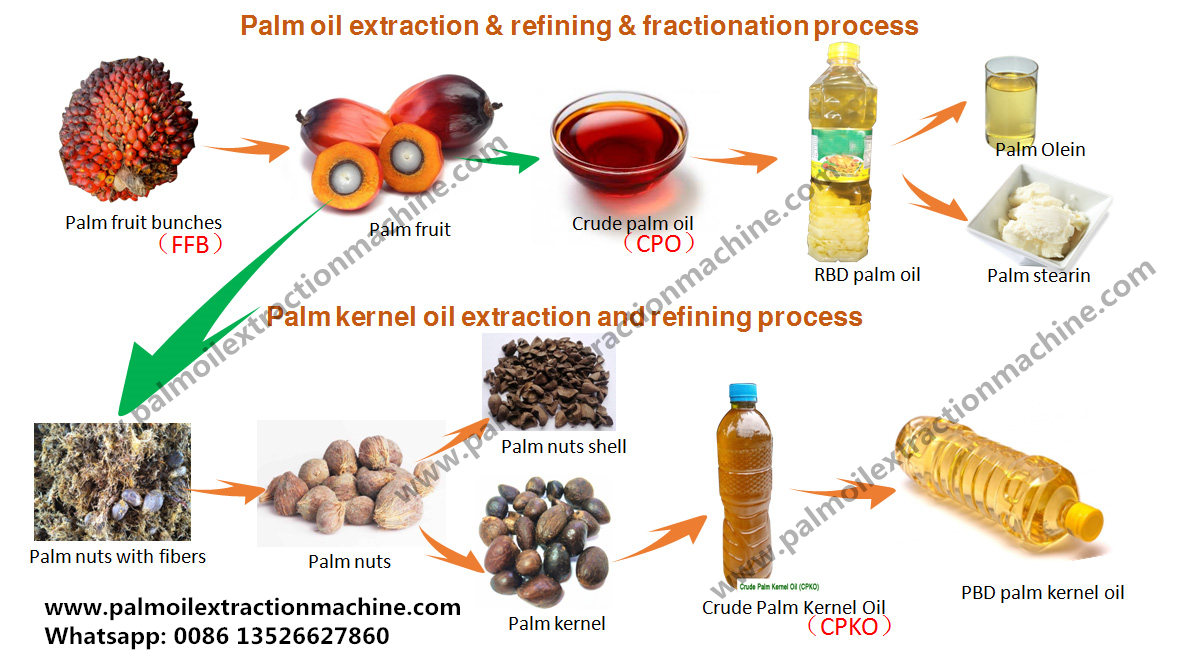The Ubiquitous Presence of Palm Oil: A Journey Through Everyday Products
Related Articles: The Ubiquitous Presence of Palm Oil: A Journey Through Everyday Products
Introduction
With great pleasure, we will explore the intriguing topic related to The Ubiquitous Presence of Palm Oil: A Journey Through Everyday Products. Let’s weave interesting information and offer fresh perspectives to the readers.
Table of Content
The Ubiquitous Presence of Palm Oil: A Journey Through Everyday Products

Palm oil, a versatile and widely produced vegetable oil derived from the fruit of the oil palm tree, has become an integral part of our daily lives. Its presence extends far beyond the kitchen, permeating countless products we use and consume. This article delves into the multifaceted applications of palm oil, exploring its significance in various industries and its impact on our daily routines.
Food Industry: A Culinary Staple
Palm oil plays a crucial role in the food industry, serving as a key ingredient in a diverse array of products. Its neutral flavor, high heat tolerance, and affordability make it an ideal choice for:
- Cooking Oils and Margarine: Palm oil’s stability at high temperatures makes it suitable for deep frying and baking, contributing to the crispy texture of fried foods and the smooth consistency of margarine.
- Processed Foods: From instant noodles and cookies to chocolate and ice cream, palm oil is a common ingredient in processed foods, enhancing texture, flavor, and shelf life.
- Bakery Products: Palm oil’s ability to contribute to a rich, buttery flavor and a soft, crumbly texture makes it a valuable ingredient in cakes, pastries, and bread.
- Spreads and Sauces: The creamy texture and stability of palm oil make it an ideal choice for spreads, sauces, and dressings, adding richness and smoothness to these products.
Beyond the Kitchen: A Multifaceted Ingredient
Palm oil’s versatility extends far beyond culinary applications, finding its way into a wide range of products we encounter daily:
- Cosmetics and Personal Care Products: Palm oil’s moisturizing properties and ability to create a smooth, silky texture make it a valuable ingredient in soaps, lotions, shampoos, and conditioners.
- Biodiesel: Palm oil is a sustainable source of renewable energy, serving as a feedstock for biodiesel production, contributing to a greener transportation sector.
- Cleaning Products: Palm oil’s emulsifying properties make it an effective ingredient in detergents, soaps, and cleaning agents, aiding in the removal of dirt and grime.
- Pharmaceuticals: Palm oil’s moisturizing properties and ability to enhance the absorption of medications make it an ingredient in certain pharmaceutical products.
The Importance of Sustainable Palm Oil Production
While palm oil offers numerous benefits, its production has been associated with environmental concerns, particularly deforestation and habitat loss. Sustainable palm oil production practices are crucial to address these issues, ensuring responsible sourcing and minimizing environmental impact.
- Certification and Labeling: Organizations like the Roundtable on Sustainable Palm Oil (RSPO) promote sustainable practices and certify palm oil produced according to specific environmental and social standards. Consumers can look for RSPO-certified products to support sustainable production.
- Traceability and Transparency: Understanding the origin of palm oil and ensuring its responsible sourcing is essential. Transparency in the supply chain allows consumers to make informed choices and support sustainable practices.
- Alternative Palm Oil Sources: Research and development are exploring alternative sources of palm oil, such as palm oil derived from sustainably managed plantations or alternative oil crops, to reduce dependence on conventional palm oil production.
FAQs: Demystifying Palm Oil
Q: Is palm oil unhealthy?
A: Palm oil is not inherently unhealthy. It contains saturated fat, but also provides essential vitamins and antioxidants. However, excessive consumption of any type of fat, including palm oil, can contribute to health issues. Moderation is key.
Q: Is palm oil vegan?
A: Palm oil itself is vegan, as it is derived from the fruit of the oil palm tree. However, some processed palm oil products may contain animal-derived ingredients, so it’s crucial to check labels carefully.
Q: How can I avoid palm oil in my products?
A: It can be challenging to completely avoid palm oil, as it is so widely used. However, you can be more mindful of your choices by checking labels, choosing products with sustainable palm oil certification, and exploring alternatives.
Tips for Making Informed Choices:
- Read Labels Carefully: Pay attention to ingredient lists and look for palm oil or its derivatives.
- Choose RSPO-Certified Products: Opt for products that carry the RSPO certification logo, indicating sustainable production practices.
- Explore Alternatives: Consider products made with alternative oils like sunflower oil, coconut oil, or olive oil.
- Support Sustainable Practices: Encourage brands to adopt sustainable palm oil sourcing and production methods.
Conclusion: A Balancing Act
Palm oil is a versatile and valuable ingredient with a wide range of applications, contributing to our daily lives in numerous ways. However, its production must be carried out responsibly to mitigate environmental and social concerns. By making informed choices, supporting sustainable practices, and exploring alternatives, we can harness the benefits of palm oil while minimizing its negative impacts.








Closure
Thus, we hope this article has provided valuable insights into The Ubiquitous Presence of Palm Oil: A Journey Through Everyday Products. We hope you find this article informative and beneficial. See you in our next article!